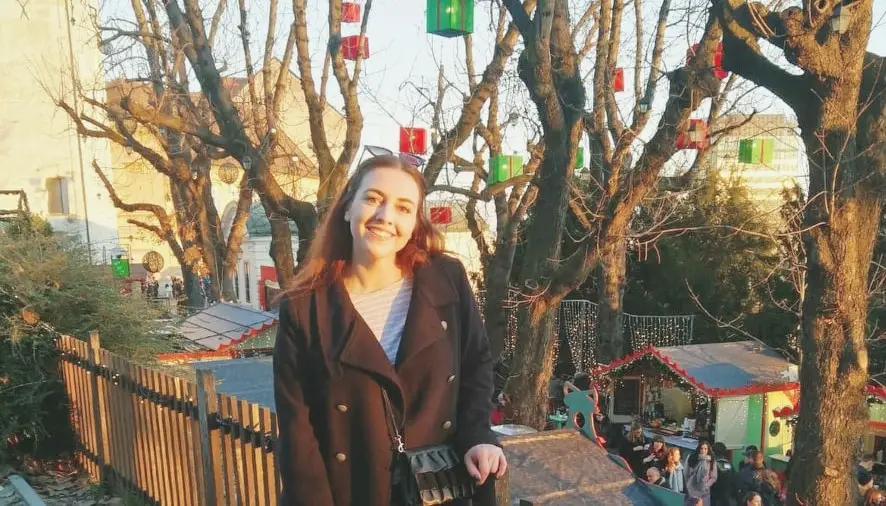With many young people emigrating from Croatia, what keeps those who decided to stay (at least for now)?
The emigration of young people from Croatia in search of better business opportunities and living standards, unfortunately, is a well-known story. Each of us young people in Croatia knows at least a few people from their environment who, at one point, said that enough was enough and decided to seek happiness somewhere abroad.
According to official Eurostat data, from 2015 to 2019, Croatia’s population decreased by 4.26 inhabitants per 1,000 citizens only thanks to emigration. Therefore, the Croatian emigration rate is the second-worst in the European Union (after Lithuania).
These data indicate that economic prosperity influences population decisions to emigrate. Besides, due to the exodus of the young and working population, there is an additional reduction in GDP per capita that closes the cycle of poverty and decline in Croatia.
However, there are many who are aware of the poor position of young people in Croatia but still do not want to give up and decide to stay in Croatia. We’re wondering what do those young people, recent graduates, think about this whole situation and what are their reasons for staying in Croatia.
We continue our series with Karla from the capital of Croatia.
First of all, please introduce yourself. What are you studying/what did you study? Do you have a job currently?
Hello to all of your readers! My name is Karla, and I am currently working on my Masters’ Degree in Social Work at the University of Zagreb. Also, I am doing administrative work in one NGO as my student job.
What is it like being a student/recent graduate in Croatia during this coronavirus era?
I attended my last semester of undergraduate studies and I will attend my full year of graduate study from home. My faculty’s building was ruined in the big earthquake that occurred last March in Zagreb, so that was the second reason we had classes online. My studies are based on a lot of practical work in various institutions, NGOs, and hospitals, so we lacked that aspect of studying, which is usually the best part. Also, that social component of having a coffee or lunch after classes were missing.

The building of the study center for social work at the University of Zagreb / Source: Unizg.hr
What are your experiences searching for a job in your profession in Croatia?
To become a social worker in Croatia, you are supposed to do a year-long internship in a Government institution to take a professional exam. Considering that, I have not yet searched for a job in my profession. Still, I am checking webpages of ministries and institutions to see how often they post job applications for interns.
What do you think of the Croatian Government’s efforts to provide opportunities for graduates?
Graduates are great potential as they are willing to work and are hungry for practical knowledge. The Government should use that on behalf of all parties. Employers should be more stimulated to take graduates. In that way, companies will get motivated workers, and young people will get work experience crucial for getting the desired job in the future.
Many young people your age decide to emigrate from Croatia to find a better job opportunity and/or life standard. What do you think about it?
I know many young people who left Croatia because they found jobs abroad, not just better-paid jobs, but also workplaces where they are respected and valued. Now, they are not even thinking about returning when they compare working conditions abroad and here. On the other hand, young people are coming back because they were not happy. It depends on the person and the culture that person enters. I don’t see anything wrong in trying and finding out what is suitable for you.

In your opinion, what would encourage young people to stay in Croatia?
Something that would encourage young people to stay in Croatia is job stability, which is currently lacking. Having that stability, young people would be able to plan a future in Croatia. Also, there should be more opportunities in all communities, not just in big cities.
Have you ever considered moving out of Croatia and why?
I see myself living abroad for a certain period of time, but definitely not forever. I want to experience working and living in some other country for a couple of months or years. For example, I plan to spend a few months working in the USA this year if the coronavirus pandemic situation allows me to. I would love to use the knowledge and skills acquired abroad to do something beneficial at home.
As a recent graduate, what is your impression of the education system in Croatia? What do you think is good about it and what could be better?
We have witnessed some outstanding achievements of young people from Croatia in international competencies and academic results. After finishing primary and high school in Croatia, you get a wide range of knowledge and an excellent base for further education. Still, the same quality of education is not provided in all parts of the country. We have to work on giving all children the same access to education, especially in today’s digital world where not all children have access to the internet and technology. In higher education, I would like to see more problem–solving and less studying a considerable amount of information that we don’t use in practice.

Zagreb by Romulić and Stojčić
Based on your own experience, can you say that everything is possible in Croatia if you work hard, work on yourself, are educated and ambitious?
I would agree with this statement! I believe we Croatians are supportive of each other. From time to time, when someone succeeds abroad or at home, you can read articles about their path of success. Of course, some branches are underdeveloped, and it is very difficult to succeed in them without law or structural change, but you know what they say – nothing is impossible, for impossible, you just need more time.
If you could change only one thing in Croatia, what would it be, and why do you think it’s important?
I want more people to acknowledge that change can be good. It helps us grow. Things are not meant to stay the same for decades.
As a young Croatian, what are you most proud of in Croatia?
Except for our beautiful nature and tradition, of course, something I am really proud of is our sense of unity, especially when a difficult situation occurs. We have seen it in the past few years more than several times. But even when we fight against floods, earthquakes, fires, or pandemics, we do not lose our sense of humor and cheerful spirit.

Are you optimistic or pessimistic about the future of Croatia, and will it be a better or worse place for your children?
I am very optimistic about the future of Croatia! I believe that young people are getting more seen and heard. Older generations are learning from the young as well as vice versa. We all want what is best for our future, and I can see some things changing for the better.
Are you a student or recent graduate who would like to contribute your voice and experiences to this series? If yes, please contact donatella@total-croatia-news.com with the subject “Graduate.”
To read more from the Croatian Graduate Perspective series, follow TCN’s dedicated page.










